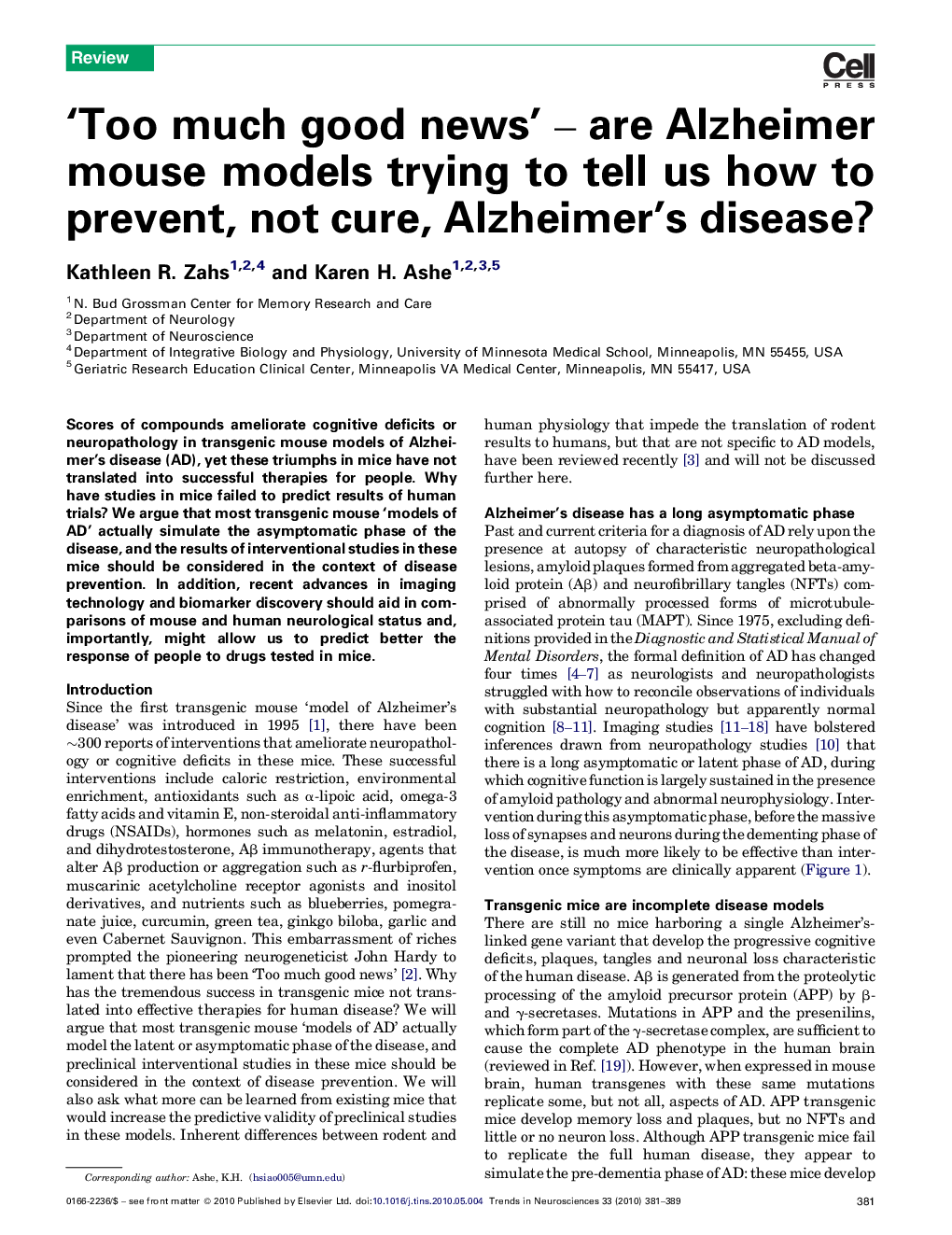| Article ID | Journal | Published Year | Pages | File Type |
|---|---|---|---|---|
| 6286840 | Trends in Neurosciences | 2010 | 9 Pages |
Abstract
Scores of compounds ameliorate cognitive deficits or neuropathology in transgenic mouse models of Alzheimer's disease (AD), yet these triumphs in mice have not translated into successful therapies for people. Why have studies in mice failed to predict results of human trials? We argue that most transgenic mouse 'models of AD' actually simulate the asymptomatic phase of the disease, and the results of interventional studies in these mice should be considered in the context of disease prevention. In addition, recent advances in imaging technology and biomarker discovery should aid in comparisons of mouse and human neurological status and, importantly, might allow us to predict better the response of people to drugs tested in mice.
Related Topics
Life Sciences
Neuroscience
Neuroscience (General)
Authors
Kathleen R. Zahs, Karen H. Ashe,
